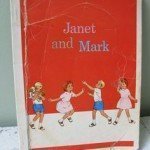
Literacy Interviews
Weeks 4 & 5: Sept 12-19
Literacy Interviews
- Sept 12: Read and annotate Deborah Brandt’s “Sponsors of Literacy” in Perusall
- Sept 14: Bring data from literacy interviews
- Sept 19: Literacy Interviews paper due
 I’d like to provide opportunities in our course to try on the role of a researcher. Our goal with this particular task is to gather literacy narratives from our family and/or friends and then use their stories to compare to the reading we are doing together. We can use our interviews as a data set, thinking together what we learn about uses of literacy by our interviewees. Below are some guiding questions you can use, but think of this work more as a conversation with someone about their memories and ideas related to reading and writing.
I’d like to provide opportunities in our course to try on the role of a researcher. Our goal with this particular task is to gather literacy narratives from our family and/or friends and then use their stories to compare to the reading we are doing together. We can use our interviews as a data set, thinking together what we learn about uses of literacy by our interviewees. Below are some guiding questions you can use, but think of this work more as a conversation with someone about their memories and ideas related to reading and writing.
Start by asking a family member or friend if you can talk to them about their memories and current practices of reading and writing. The best interviews are often with someone who is older. If you have a grandparent you can talk to or a parent, an aunt, then that is super cool.
For the interview, your “participant” could either answer questions over email, you could record a Skype or Zoom conversation, or take notes while you talk to them face to face (or mask to mask), or on the phone. You might want to try out an app called Otter.ai, which captures a transcript of conversation. Try to capture as much as you can exactly what your interviewee says.
You do not need to ask all the questions below. Choose a couple questions that seem relevant for the person and then hopefully the questions will kick off a conversation about literacy. Plan for a 20-30 min interview.
 Potential Interview Questions—
Potential Interview Questions—
- Try to think of your earliest memories of writing and reading. What do you remember of reading and writing before you began school? Who helped you with it and what was that like?
- What kinds of writing did you see your parents, siblings, and other family members doing as you were growing up? What did they read, where, and when?
- What stories did your parents tell you about their own efforts to learn to read and write? What kinds of values did they place on reading and writing?
- How did reading and writing change as you entered elementary school? What did you do with reading and writing related to school tasks?
- What are you asked to do with reading and writing at this point in your life?
- When you were growing up, how much school reading and school writing was done with computers? What kinds of things did you do? What values did your teachers place on computer literacy?
- In the next ten years, what will reading and writing become? What skills and understandings about online literacy will people need to have? What about emojis and gifs and screen time; how do your friends and family use digital literacies? For what purpose?
- Additional questions we came up with in class:
- Do you have a favorite book?
- How did you take notes in class? Did you take notes in class? For what purpose?
- How did your children play a role in your reading and writing?
- What was going on in the world while you were reading and writing or learning to?
- What is your favorite form of reading and writing versus the most important or commonly used form?
- What were you told was the proper version of reading and writing?
- Were you given a specific time to read?
- How have habits changed from elementary to middle to high school…
- Do you enjoy reading and writing? Why or why not?
- Do your childhood experiences influence your reading and writing?
- What books did you read in high school?
- Sept 14: Bring data/notes from literacy interviews to class
By Sept 19: Writing up your findings: Once you’ve conducted your interview, hopefully you can place the literacy interviews and Brandt’s insights together. What if our interviews were the only data we had that helped us to understand how people think about reading and writing: what might we learn about its importance or the role literacy plays in people’s lives? You could think of Deborah Brandt’s article as an example: notice how she describes the people in her study and their experiences with literacy (Raymond, Dora, etc). She is writing up her interviews in the same way you will, sharing what we learn from this data collection. You could also use any data you collected about your literacies and reflect on those ideas with Brandt in mind or compare to data collected about your own literacies to your interviewee. Use direct quotes from your interview when possible.
Examples from previous semesters:
Sept 19 (before class): Share paper with me as google doc: kjaxon@mail.csuchico.edu (*NOTE: email slightly different for sharing in google than my regular email.)

 Website:
Website: